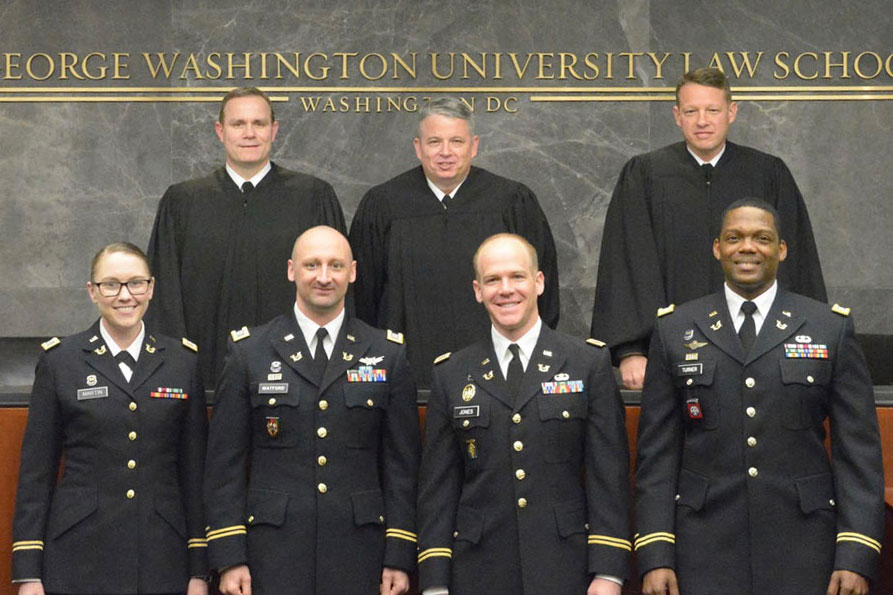The GW Law Military Law Society and National Security Law Association hosted the Army Court of Criminal Appeals for an oral argument, followed by a question and answer session and reception. Military criminal appellate courts have held annual oral argument hearings at GW Law, as part of their public outreach programs, since 2009.
The court heard arguments in the case of United States v. Lopez. Appellant, Staff Sergeant Jason A. Lopez, was convicted, contrary to his pleas, of one specification of failure to go to his appointed place of duty, five specifications of failure to obey a lawful general regulation, two specifications of failure to obey a lawful order, three specifications of larceny of government property of value over $500.00, one specification of wrongful appropriation of government property, three specifications of assault consummated by battery, and two specifications of violating the National Firearms Act, in violation of Articles 86, 92, 121, 128, and 134, Uniform Code of Military Justice.
The military panel with enlisted representation sentenced appellant to confinement for two years. The convening authority approved the adjudged sentence, deferred service of the sentence to confinement until appellant was permanently released to the armed forces by state authorities, and credited appellant with 202 days of confinement credit.
Three issues were raised on appeal. The first issue asked whether the Fort Benning Garrison commander had the legal authority to authorize searches in privatized housing at Porter Village; issue two asked if MCoE Regulation Number 190-11 prohibits the possession of unregistered firearms (or other applicable weapons) in Porter Village, and if not, whether the Garrison commander still had a substantial basis for concluding that probable cause existed to search the appellant’s house; and the final issue asked whether if the good faith exception applies assuming there was not probable cause to search appellant’s house.
After the arguments concluded, students in the audience had the opportunity to ask questions. A reception followed and students were able to network with the judges and recruiting officers from all the military services in attendance.


